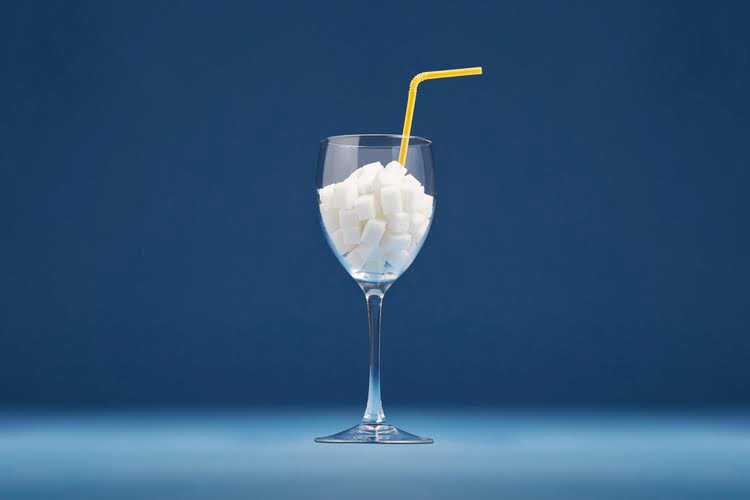People in recovery can use step-by-step goal setting to increase their chances of success. Before a person decides on any goals, it’s helpful to first do a little bit of reflection. People should think about what they like in their current life, what they would like to be different, what new things they hope to get in the future and how they would like to be spending their time.
- You can also work with your therapist or counselor during drug or alcohol addiction treatment to decide which goals you will set at the beginning of the process.
- Your specific goal should align with your values, needs, and aspirations.
- Set specific and measurable objectives, define the precise outcome you want to achieve, and have a way to assess your progress.
- Read on to learn more about the concept of SMART goals, and their importance in addiction recovery, and provide examples and tips for setting realistic and achievable objectives.
- Aftercare is essential in ensuring long-term sobriety goals are met.
- When you set goals (and set them the right way) you’ll be much more likely to experience and notice early success.
Evaluating Progress and Adapting the Plan

Finally, setting time-bound goals provides a sense of urgency and helps establish a timeline for achieving objectives. Addiction can be described http://www.ocean-elzy.net/greats-efgh/175/ as a chronic and progressive disease because most individuals find that the severity of their symptoms and the impairment caused by their use worsens the longer they use. Comprehensive and individualized care is common among substance abuse treatment facilities and can help individuals successfully navigate the changes in their lives that come with sobriety. The U.S. Department of Health and Human Services and the Substance Abuse and Mental Health Services Administration released the National Survey on Drug Use and Health for 2021.
Treatment Goals for Substance Use Disorders: How are They Adjusted Over Time?
I learned to love myself for the first time…I’m going to start a new chapter in my life because of Silver Ridge. At Silver Ridge http://www.scoota.ru/video/509%20title= Recovery, making SMART goals is part of every treatment plan. You’ll be able to collaborate from day one, so your goals are personalized and attainable. When setting your own SMART goals for recovery doesn’t work out how you planned, don’t worry — you’re not alone. Many of us try to set and achieve goals on our own early on in recovery, and that’s when it’s the hardest. When it comes to treatment goals for substance use disorders, there are many different types.
Self Care Sanctuary: A Weekend of Renewal and Connection
In addition to his AUD symptoms, John has limited coping skills for stress, as this was indicated as a trigger for his use. John was referred to your inpatient rehabilitation program by his primary care physician after his arrest, which would warrant care coordination. This allows you to communicate with his doctor about his participation in treatment, and coordinate aftercare plans if his http://dumso.ru/news/dumso-i-rodnik-gotovyatsya-k-festivalyu-blago-daryu.html discharge plan includes the continued use of addiction medications. Read on below for a case study example of how applyingthe SMART framework to short-term goals helps a person realize loftier longer-term objectives. If it happens, use it as a learning opportunity to identify potential gaps or triggers that must be addressed properly. Consider intensifying specific interventions or adding new ones.

Policy & Practice Improvement Series
If you can identify your motivations, understand your challenges and recognize that the outcome will be worth the effort, you will be ready to create your plan. From gourmet cuisine to our spacious, 10,000 square foot estate, Silver Ridge provides a tranquil and peaceful setting for recovery. Your relationship goals will be tricky to decide on, especially because some people may benefit your sobriety, and others may endanger it.
Collaborative Approach

Drugs and alcohol have a profound effect on our brains and bodies, which contributes to withdrawal symptoms. Creating a customized drug abuse treatment plan is crucial for providing focused care to individuals dealing with substance abuse. This plan serves as a roadmap for therapy, setting realistic objectives and ensuring steady advancement towards recovery.
If a person uses as much of the drug as they did before quitting, they can easily overdose because their bodies are no longer adapted to their previous level of drug exposure. An overdose happens when the person uses enough of a drug to produce uncomfortable feelings, life-threatening symptoms, or death. Relapse is not a failure, but it’s best to avoid it, as bouncing back can be difficult. Even so, if you or someone you know happens to relapse, our Philadelphia drug treatment center offers stabilization care designed to help individuals who have relapsed get back on their feet. Helps people understand addiction, their triggers, and their reasons for using drugs.
By taking it step by step, a sense of achievement is fostered, and momentum is constructed toward a healthier and addiction-free life. Moreover, SMART goals assist individuals in prioritizing their actions and making efficient use of their time and resources like addiction recovery articles or other educational material. The time-bound aspect of SMART goals ensures that individuals set deadlines, thereby promoting a sense of urgency and focus in their recovery efforts. Ensure your specific goal is achievable based on your circumstances, resources, and capabilities.

FAQ: Your Top Questions on Drug Abuse Treatment Plans
- Incorporating regular exercise and mindfulness into your daily routine is essential for improving physical and mental well-being in addiction recovery.
- When counseling ends, the next phase involves setting goals for long-term recovery.
- The primary goal is achieving and maintaining abstinence from the substance of abuse.
- Don’t worry, we are in network with over 100 insurances nationwide.
- For example, an addiction recovery goal that is relevant might be working out at a gym a certain number of times per week.
- When setting goals, you can also utilize a SMART goal-setting worksheet to keep track of the progress of your goals.
Additionally, cultural sensitivity and a treatment plan that respects the client’s background and beliefs are crucial to remember. It may be frustrating to need to change your lifestyle, but these changes can quickly yield positive dividends as you continue to strive for recovery. While your main goal will always be to practice abstinence from drugs and alcohol, the above goals are much less vague, and therefore easier to pursue and accomplish. Consider using the following SMART goal examples to guide your brainstorming.

